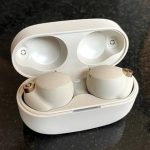Better hearing with optical cochlear implants
Cochlear implants enable people with profound hearing impairment to gain a great deal in terms of quality of life, including understanding spoken words and developing normal speech. However, background noises are problematic; they significantly compromise the comprehension of speech of people with cochlear implants. The team led by Tobias Moser from the Institute for Auditory Neuroscience and InnerEarLab at the University Medical Center Göttingen and from the Auditory Neuroscience and Optogenetics Laboratory at the German Primate Center—Leibniz Institute for Primate Research (DPZ) is therefore working to improve cochlear implants. The scientists want to use genetic engineering methods to make the nerve cells in the ear sensitive to light so that they can then be stimulated with light instead of electricity, as is currently the case. By using light, the scientists expect to be able to stimulate the neurons in the ear more selectively.












